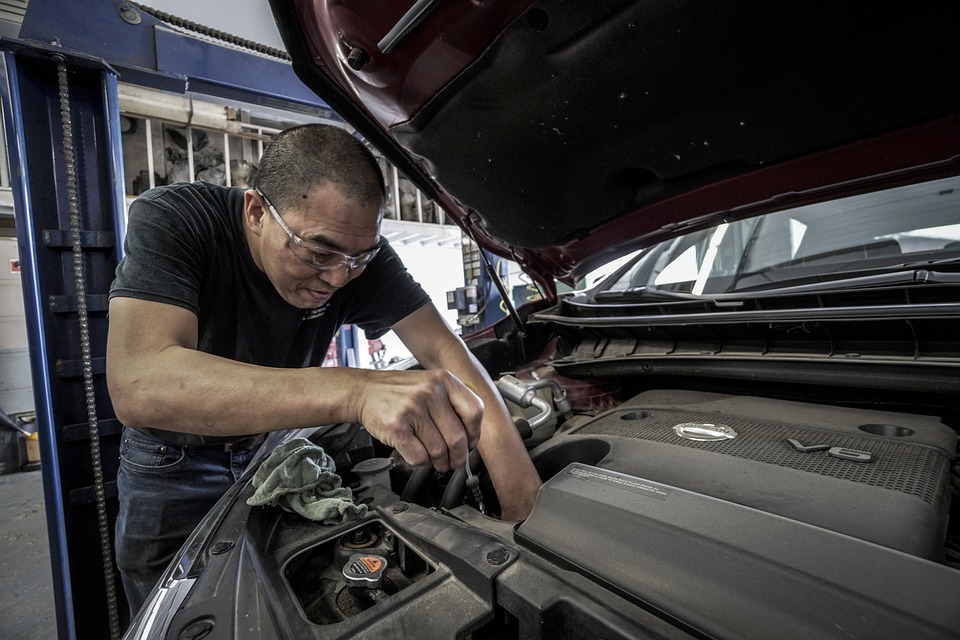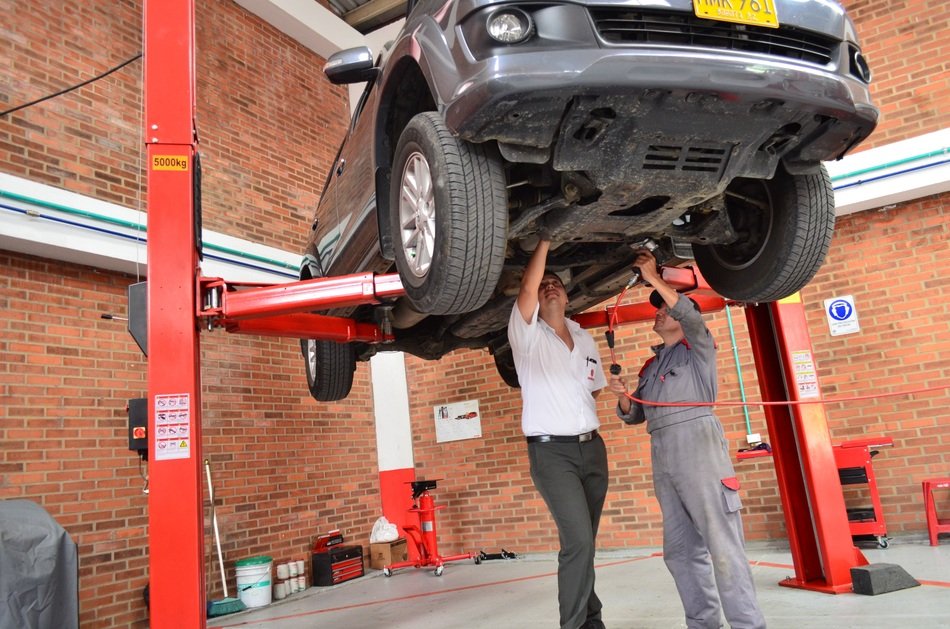
American consumers who inadvertently purchase a defective vehicle have more rights than they may realize at first. They certainly aren’t alone: the National Highway Traffic Safety Administration (NHTSA) estimates American car consumers unknowingly purchase 150,000 “lemon” vehicles a year. These “lemons” contain repeated, unfixable defects ranging from innocuous problems like painting mistakes or a foul odor to dangerous safety hazards, such as fuel line problems or malfunctioning safety systems. Every automotive manufacturer, including Toyota, GM, Honda, Ford and more builds hundred and sometimes thousands of lemons every year. These problems can cost consumers thousands of dollars in repair costs, lost wages and other fees trying to deal with them.
The attorneys of Allen Stewart P.C. speak with American consumers every day who bought new vehicles they assumed would work correctly, but instead were unjustly saddled with an expensive, defective dud. Lemon law attorneys specialize in navigating state and federal lemon laws and getting them the justice they deserve.
Before buying a new car, you should know what rights you have in case that car turns out a lemon. Lemon laws throughout the United States offers different standards of protections, while all Americans enjoy the federal protection of the Magnuson-Moss Warranty Act. Lemon laws protect consumers whose cars present with “nonconformities.” Defects can occur because of a myriad of reasons: substandard materials, human errors during manufacturing, faulty components and many more. When these defects occur because of the manufacturer and not the consumer, they cause a vehicle to not conform with its written warranty; hence the term “nonconformity.”
One important facet of state and federal lemon laws forces consumers to make warranties readily available during the shopping process. This lets consumers incorporate warranty protection into their decision making process when shopping for a vehicle.
Lemon laws generally offer two different way to make a consumer whole, if the manufacturer fails to repair the problem permanently. One is repurchase, or buyback: the manufacturer simply refunds the money the consumer spent on the vehicle plus expenses. Buybacks can resolve within three weeks, though this is a best-case scenario in which the manufacturer doesn’t oppose the claim or fight it in court. The manufacturer repays the consumer the vehicle’s full sticker price including sale price, taxes, title and registration fees. Lemon laws usually also require the manufacturer pay related expenses incurred from the loss of use of the motor vehicle. These expenses include rental car fees, towing costs, personal property damage, and other incidental costs.
Consumers awarded buybacks are free to use that money however they like. Many use it as a down payment toward a new vehicle or buying a less expensive used vehicle outright – hopefully one lacking the serious, unfixable problems of the last vehicle. One thing to keep in mind, however, is that many state lemon laws entitle manufacturers to withhold a “reasonable allowance for the consumer’s use of the vehicle.” This means the manufacturer can keep a certain amount of money calculated by how long you were able to drive the vehicle before the defect arose. Put simply, the more miles you got out of the vehicle before it went into the shop, the less money the manufacturer must pay out.

Consumers can opt for replacement in lieu of a buyback. Consumers who pick this option are entitled to a properly functioning vehicle from the original vehicle’s manufacturer. Specifically, the manufacturer must provide a “comparable” vehicle, meaning a vehicle of a similar make and model. Much like in the case of repurchasing, the manufacturer must reimburse the consumer for reasonable incidental costs while also withholding reasonable allowances for the consumer’s use of the original vehicle.
While consumers indeed have rights protecting them from defective vehicles and the manufacturers that sell them, those rights come with limits. Each state has a “statute of limitations” on its lemon law, meaning if the consumer waits too long to file their case, they no longer have legal standing. American law has statutes of limitations for both civil and criminal claims, though particularly serious criminal claims have no statutes of limitations. Statute lengths can vary from state to state depending on the laws in those states.
Each state’s lemon law statute of limitations varies slightly. Texas consumers, for example, must file a state lemon law complaint no later than 42 months from the date the warranty became active. However, if the consumer drives the vehicle 20,000 in the first year after the vehicle’s delivery, the consumer will need to file the Texas state lemon law complaint before the car traveled another 4,000 miles, even if that occurs before the expiration of the 42 months mentioned above.
Each state’s lemon law differs slightly on what protections they offer consumers. The Texas lemon law, as do other states’ lemon laws, cover what it calls “serious defects.” Those are defined as problems that “substantially impair the use or market value of a vehicle.” If it makes it harder (or in some cases even dangerous) to operate or sell the vehicle, the law considers it a serious defect.
Each state defines a “serious defect” in its own way, and also chooses how many repair attempts a manufacturer is allowed before declaring the vehicle a lemon and opening the way for the claims process. Vehicles in Texas, for example, must pass one of three tests: the serious safety hazard test, the 30 day test, or the “four times test.”
A vehicle passes the serious safety hazard test of the owner takes it to the manufacturer to repair a serious safety problem during the first 12 months of ownership or 12,000 miles driven, whichever comes first, an then once more during the 12 months or 12,000 miles following the first repair attempts without the problem being fixed. The Texas lemon law defines a “serious safety hazard” as any life-threatening malfunction that substantially impedes the driver’s ability to control or operate the vehicle normally, or that creates a substantial risk of fire or explosion.
A vehicle passes the 30-day test if it’s been out of commission for 30 days or more, specifically because of a manufacturer’s defect. Those 30 days of shop time must occur during the first two years or 24,000 miles driven without a comparable loaner vehicle offered, and there were unsuccessful repair attempts made during the first year or 12,000 miles driven.
Each state can require different amounts of time or repair attempts before declaring a vehicle a lemon and allowing the claims process to proceed; some days require 45 days in the shop before declaring the vehicle a lemon or requiring only three unsuccessful repair attempts. A lemon law attorney knows how to navigate each state’s lemon law to find the best path forward for your claim.
One law, however, supersedes all state laws: the federal Magnuson-Moss Warranty Act. The Act protects consumers’ rights to legal recourse after unknowingly purchasing a lemon vehicle no matter what state they live in.
The Magnuson-Moss Warranty Act covers many facets of American consumer law. The Act makes companies use plain, easily understood language in their written warranties and requires them to stand by their warranties in court if necessary. When companies don’t end up their end of the deal, the Act helps consumers get recompense in course.
The Magnuson-Moss Warranty Act makes companies designate any warranties they offer as either “full” or “limited” and specify exactly what they cover in a single, clear, easy-to-read document. They must also make the warranty conspicuously available for consumer review, allowing consumers to shop for warranty coverage before making a purchase.
The Act also keeps these companies from disclaiming or modifying implied warranties with their written ones. This means consumers are always entitled to the basic protections of “implied warranties of merchantability;” that a good sold must do what that good is supposed to. For example: a new car should operate and convey passengers and cargo from point A to point B safely. A car that cannot do this does not conform to the implied warranty of merchantability.
The Magnuson-Moss Warranty Act arose in response to alleged widespread consumer rights violations by companies in the 1900s. Before the Act’s creation “let the buyer beware” was the cornerstone of much of American consumer law. As the gulf between end consumers and producers grew, the country needed new laws to govern that gulf.
Lawmakers first attempted harmonizing consumer and transaction laws across the country with the still-extant Uniform Commercial Code (UCC). States adopted code into their statutes either fully or partially, even though the Code itself is not law. Every U.S. state but Louisiana adopted UCC rules, who instead opted to keep their own Napoleonic civil law traditions.
The Magnuson-Moss Warranty Act helps consumers by giving them and their attorneys the tools they need to pursue lemon law claims in court. If your vehicle’s manufacturer fails to live up to their end of the warranty, a lemon law attorney can help you pursue your lemon law claim and get the justice you deserve.
Hiring a lemon law attorney is the single best step you can take for the well-being of your lemon law claim. Your lemon law lawyer will work closely with you throughout your claim’s lifespan, keeping you up to date on the latest developments and getting required records from you as needed.
One roadblock many consumers across America face when pursing a lemon law claim is arbitration. Many state lemon laws require consumers first attempt finding relief through an “informal dispute settlement procedure” (arbitration) before going to the courts. Some states require manufacturers pay for a consumer’s attorney during this process, while others, including Texas, do not.
Lemon law attorney Andrew Ross with Allen Stewart P.C. said arbitration rarely works out in favor of the consumer. Arbitration usually ends in a single day inside a conference room and not a courthouse, but often the “best case scenario” still ends relatively poorly for the consumer. Ross said the manufacturer often sends an engineer who is advised by a lawyer “behind the scenes.”
“It’s been my experience that those arbitrations are a waste of time,” Ross said. “Rarely does the BBB render a decision that satisfies the consumer.”
He said the best consumers can usually hope for in arbitration is a buyback, but there’s no guarantee that goes smoothly for the consumer.
“When they award a buyback, they don’t tell you what the figures are,” he said. “First you must accept the decision, and then they’ll tell you what the figures are. It’s a bad situation for the consumer.”
The lemon law lawyers of Allen Stewart P.C. have many years of experience with breach of warranty claims and aren’t afraid to take major multinational corporations to court. They have a proven track record of fighting for their clients and winning, getting their clients the compensation to which they are entitled by law. If your vehicle’s manufacturer doesn’t hold up their end of the warranty, the lemon law experts at Allen Stewart P.C. make sure you get the compensation you deserve. The longer you wait the harder it will be to get a positive outcome. Don’t let a lemon vehicle leave you on the side of the road; contact Allen Stewart P.C. today and get back behind the wheel.
